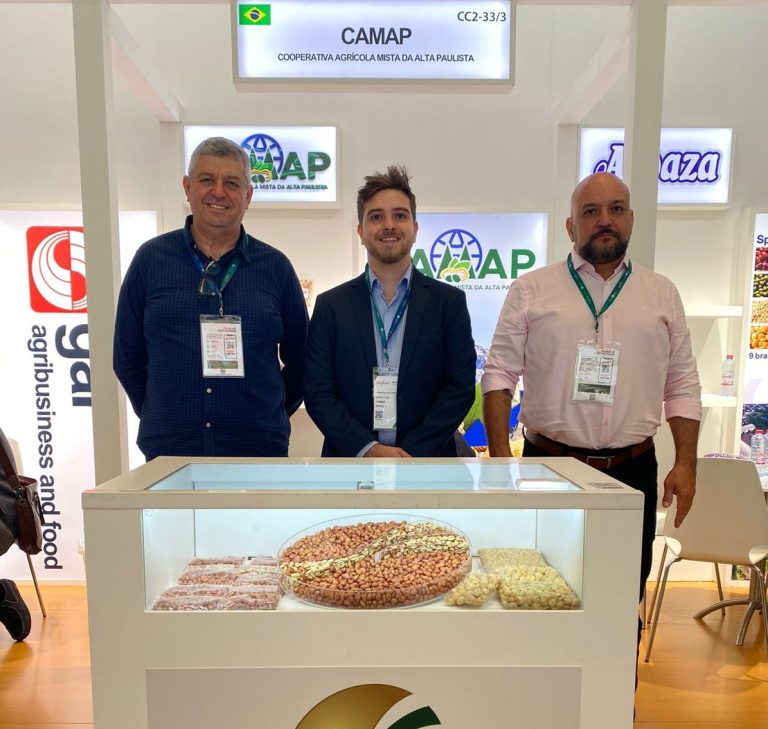São Paulo – A cooperative from Brazil’s largest peanut producing region is at Gulfood, the biggest food and beverage exhibition in the Middle East, to sell the yields from the crop that started earlier this month. The Alta Paulista Mixed Agricultural Cooperative (CAMAP), from the city of Tupã, is an exhibitor in the area organized by the Arab-Brazilian Chamber of Commerce (ABCC) in the trade show.
CAMAP participates in Gulfood together with its partner trading firm Francfort Trade. “We came to sell a large part of the yields from the peanut crop that is happening now. This exhibition is very important for us, as it kinds of dictates how our year will be, commercially-wise,” Francfort Managing and Financial manager Leonardo Francfort told ANBA by the phone from Dubai. Pictured, Leonardo Francfort (C) flanked by CAMAP and Francfort Trade workers at Gulfood.
Brazil is expected to harvest some 927,000 tonnes of peanuts from the 2023/204 crop, up 3.8% from 892,800 harvested in the previous crop, crop agency Conab reported. The country grows peanuts over some 628,000 acres – 519,000 of which is in the São Paulo state. The region around Tupã holds the largest peanut farms.
CAMAP receives the peanut crop yields from the region’s farms, while Francfort is responsible for shipping them, in a partnership that has gone on for two years, the manager said. Their largest peanut markets are Arab states Algeria, United Arab Emirates and Egypt, as well as Turkey and Russia.
Francfort expects to sign new sales deals and strengthen their relationships with their buyers at Gulfood. No deals had been signed by the end of the first day, but the manager is optimistic, as every year purchases are usually carried out at the end of the exhibition. “Some people say they will check the prices first,” he says.
In addition to CAMAP and Francfort, other ten companies participate in as exhibitors in the ABCC space in Gulfood. Other Brazilians participate in stand-alone stands and pavilions organized by other associations. The ABCC also holds halal food promotion via the Halal do Brasil project together with the Brazilian Trade and Investment Promotion Agency (ApexBrasil).
Translation by Guilherme Miranda




